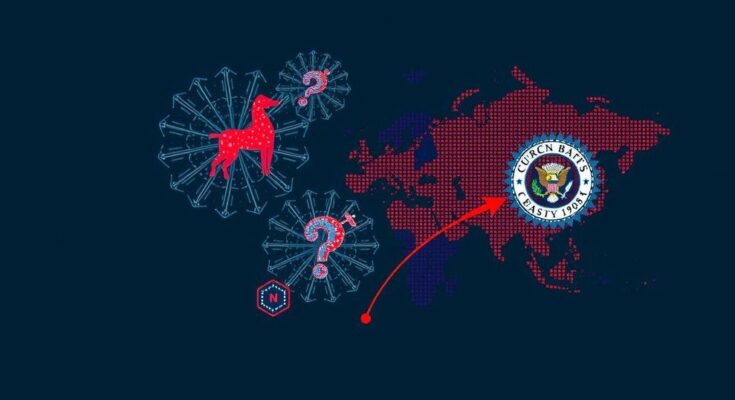US intelligence warns of foreign interference in the November 5 presidential election, with concerns about Russia and Iran amplifying disinformation and inciting political violence. China is also implicated in local election disinformation efforts. The decision-making regarding public disclosures about these threats is complex and fraught with political implications. Media literacy initiatives are recommended as a defense against such influence campaigns, though their effectiveness may vary in the US context.
The United States intelligence community has reiterated grave concerns regarding the potential interference in the upcoming presidential election on November 5, suggesting that foreign adversaries, particularly Russia and Iran, may exacerbate political tensions and provoke violence. On Tuesday, the Office of the Director of National Intelligence reported that Moscow has been actively disseminating and amplifying narratives that accuse Democratic Vice Presidential nominee Tim Walz of misconduct. Such maneuvers are deemed a precursor to instigating violent protests post-election. Additionally, China has been noted for its involvement in disinformation strategies; however, it appears to direct these efforts towards local and state elections, which are perceived as more vulnerable to manipulation compared to national races. Experts assert that Beijing’s tactics include amplifying divisive topics such as immigration and racial justice through fabricated social media accounts, thereby targeting issues that may elude enhanced scrutiny. The manner in which intelligence agencies disclose potential foreign interference carries profound political ramifications. Intelligence assessments tend to face skepticism, making it challenging to relay warnings without the risk of partisan exploitation. US intelligence agencies follow a stringent protocol to ensure a depoliticized assessment of threats, allowing public notification only if certain criteria are met—a process often hindered by bureaucracy. While tech corporations such as Microsoft have attempted to bridge this information gap through their threat analyses, they lack the authoritative weight and comprehensive intelligence infrastructure inherent in government agencies. Efforts to foster media literacy have emerged as vital defense mechanisms against foreign influence campaigns. Notably, Finland has heavily invested in media literacy programs since 2014, a direct response to threats originating from Russia, and Taiwan has empowered trusted NGOs to counteract Chinese interference during its recent presidential election. However, experts caution that these strategies may not yield the same success in the United States, primarily due to the country’s larger scale, diverse political landscape, and differing levels of trust in governmental institutions.
The topic of foreign election interference has gained prominence as nations increasingly leverage disinformation tactics to influence democratic processes. With the upcoming presidential election, US intelligence agencies have underscored the threat posed by foreign entities seeking to disrupt electoral integrity and incite civil unrest. Russia’s historical pattern of meddling, coupled with China’s emerging strategies to target local elections, underscores the complexities involved in safeguarding the electoral process. The discourse surrounding these issues is further complicated by the political implications of how and when such threats are communicated to the public.
In summary, the warnings issued by US intelligence about foreign interference in the upcoming presidential election highlight the necessity for vigilance against possible attempts to incite discord and violence. The involvement of adversarial nations such as Russia and China reflects a multifaceted threat landscape, necessitating a concerted effort to bolster public awareness and resilience against disinformation campaigns. Additionally, the methods by which intelligence agencies communicate their assessments underscore the critical importance of transparency while navigating the political ramifications of such disclosures.
Original Source: www.semafor.com




